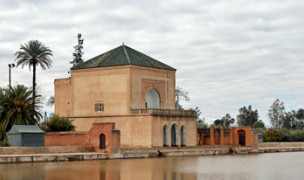 9 Terms
9 TermsHome > Terms > English (EN) > developing countries
developing countries
A euphemism for the world’s poor countries, also known, often optimistically, as emerging economies. Some four-fifths of the world’s 6 billion people already live in developing countries, many of them in abject poverty. Developing countries account for less than one-fifth of total world GDP. Economists disagree about how likely--and how fast--developing countries are to become developed. Neo-classical economics predicts that poor countries will grow faster than richer ones. The reason is diminishing returns on capital. Since poor countries start with less capital, they should reap higher returns than a richer country with more capital from each slice of new investment. But this catch-up effect (or convergence) is not supported by the data. For one thing, there is, in fact, no such thing as a typical developing country. The official developing world includes the (sometimes) fast-growing Asian tigers and the poorest nations in Africa. Studies of the relationship between growth and GDP per head in rich and poor countries found no evidence that poorer countries grew faster. Indeed, if anything, poorer countries have grown more slowly. Development economics has argued that this is because poor countries have unique problems that require different policy solutions from those offered by conventional developed-world economics. But new endogenous growth theory instead argues that there is conditional convergence. Hold constant such factors as a country’s fertility rate, its human capital and its government policies (proxied by the share of current government spending in GDP), and poorer countries generally grow faster than richer ones. Since, in reality, other factors are not constant (not all countries have the same level of human capital or the same government policies), absolute convergence does not happen. Government policies seem to be crucial. Countries with broadly free-market policies – in particular, free trade and the maintenance of secure property rights--have raised their growth rates. (Although some economists argue that the Asian tigers are an exception to this free-market rule. ) Open economies have grown much faster on average than closed economies. Higher public spending relative to GDP is usually associated with slower growth. Furthermore, high inflation is bad for growth and so is political instability. The poorest countries can indeed catch up. Their chances of doing so are maximized by policies that give a greater role to competition and incentives, at home and abroad. Despite starting with a big disadvantage, there is evidence that some developing countries do not help themselves because they squander the resources they have. Institutions that produce effective governance of an economy are crucial. Those countries that use their resources well can grow quickly. Indeed, the world’s fastest-growing economies are a small subgroup of exceptional performers among the poor countries.
- Part of Speech: noun
- Synonym(s):
- Blossary:
- Industry/Domain: Economy
- Category: Economics
- Company: The Economist
- Product:
- Acronym-Abbreviation:
Other Languages:
Member comments
Terms in the News
Billy Morgan
Sports; Snowboarding
The British snowboarder Billy Morgan has landed the sport’s first ever 1800 quadruple cork. The rider, who represented Great Britain in the 2014 Winter Olympics in Sochi, was in Livigno, Italy, when he achieved the man-oeuvre. It involves flipping four times, while body also spins with five complete rotations on a sideways or downward-facing axis. The trick ...
Marzieh Afkham
Broadcasting & receiving; News
Marzieh Afkham, who is the country’s first foreign ministry spokeswoman, will head a mission in east Asia, the state news agency reported. It is not clear to which country she will be posted as her appointment has yet to be announced officially. Afkham will only be the second female ambassador Iran has had. Under the last shah’s rule, Mehrangiz Dolatshahi, a ...
Weekly Packet
Language; Online services; Slang; Internet
Weekly Packet or "Paquete Semanal" as it is known in Cuba is a term used by Cubans to describe the information that is gathered from the internet outside of Cuba and saved onto hard drives to be transported into Cuba itself. Weekly Packets are then sold to Cuban's without internet access, allowing them to obtain information just days - and sometimes hours - after it ...
Asian Infrastructure Investment Bank (AIIB)
Banking; Investment banking
The Asian Infrastructure Investment Bank (AIIB) is an international financial institution established to address the need in Asia for infrastructure development. According to the Asian Development Bank, Asia needs $800 billion each year for roads, ports, power plants or other infrastructure projects before 2020. Originally proposed by China in 2013, a signing ...
Spartan
Online services; Internet
Spartan is the codename given to the new Microsoft Windows 10 browser that will replace Microsoft Windows Internet Explorer. The new browser will be built from the ground up and disregard any code from the IE platform. It has a new rendering engine that is built to be compatible with how the web is written today. The name Spartan is named after the ...
Featured Terms
Nkosazana Dlamini-Zuma
Nkosazana Dlamini-Zuma is a South African politician and activist. While studying Zoology and Botany at the University of Zululand in the 1970s, she ...
Contributor
Featured blossaries
Marouane937
0
Terms
58
Blossaries
3
Followers
Top 10 Places to Visit on a Morocco Tour
 10 Terms
10 Terms
Browers Terms By Category
- Economics(2399)
- International economics(1257)
- International trade(355)
- Forex(77)
- Ecommerce(21)
- Economic standardization(2)
Economy(4111) Terms
- Railroad(457)
- Train parts(12)
- Trains(2)
Railways(471) Terms
- Human evolution(1831)
- Evolution(562)
- General archaeology(328)
- Archaeology tools(11)
- Artifacts(8)
- Dig sites(4)

